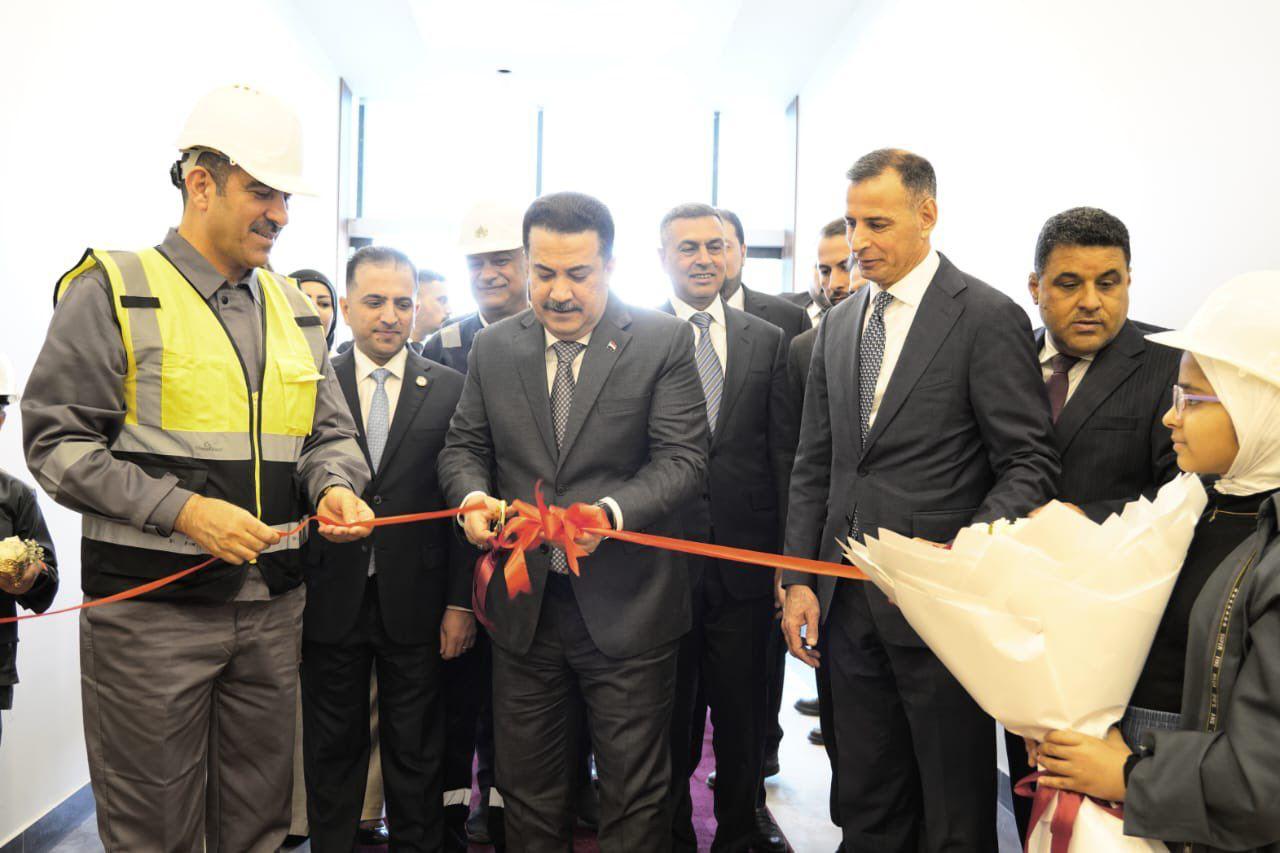AAA Holdings opens new extension to fertiliser factory by PM H.E Al Sudani

The Prime Minister, H.E Mr Al Sudani opened Dr Amet Selman’s AAA Holdings new extension to their fertilizer factory in Basra this week.

On the back of the newly opened factory, the extension will further expand production by 500,000 tons to 1.5m tons, and more significantly will include the ability to bespoke fertilizer production, through an Artificial intelligence lab, to suit the various soil types in Iraq.

The factory focuses on production of NPK; Nitrogen (N), Phosphorus (P), and Potassium (K), which are three primary nutrients essential for plant growth. Their roles and positions in climate change are multifaceted, impacting both mitigation and adaptation strategies.( see reference note below)

The ability to bespoke fertilizer to Iraqi soil types comes following AAA holdings initiative with the IBBC agritech committee, to use technology to adapt and measure the various soil types and conditions in Iraq. A pilot project to measure and understand Iraqi soil conditions is being developed by the committee and AAA Holdings, this data will then directly feed into the refinement and creation of optimal fertilizers for Iraqi farmers from the factory extension.
Dr Selman has already increased production from 750,000 tons to 1m tons this year, due to demand from farmers, and this additional 500k capacity is yet further confidence in the quality of AAA’ s production and demands from Iraqi agriculture. PM Sudani has also stated that growing the agricultural sector is a priority for Iraq (historically it has accounted for up to 25% of GDP, and now languishes at less than half of that capacity) and sees home grown bespoke agriculture to increase food security and productivity.
Dr Selman says ‘this step forward signifies our commitment to innovation and supporting agriculture. A big thank you to our team and partners for making this possible. Together, we’re growing towards a sustainable future!’
Baroness Nicholson Of Winterbourne, H.M Trade Envoy to Iraq ’ I am delighted that AAA Holdings, a British- Iraqi company, are making such rapid expansion in the agricultural markets. Under Dr Selman, they epitomise the best of both nations working together for the benefit of Iraq, in a modern, innovative and competitive manner.’

Technical Reference;
NPK stands for Nitrogen (N), Phosphorus (P), and Potassium (K), which are three primary nutrients essential for plant growth. Their roles and positions in climate change are multifaceted, impacting both mitigation and adaptation strategies.
- Agricultural Productivity and Food Security: NPK fertilizers are crucial for enhancing agricultural productivity, which is vital for feeding the global population, especially as climate change affects crop yields. However, optimizing the use of these nutrients is necessary to reduce greenhouse gas emissions from excessive or inappropriate application.
- Greenhouse Gas Emissions: Nitrogen fertilizers are a significant source of nitrous oxide (N2O), a potent greenhouse gas with a global warming potential many times that of carbon dioxide (CO2). Improving nitrogen use efficiency in agriculture can significantly reduce N2O emissions, contributing to climate change mitigation.
- Soil Health: Proper management of NPK nutrients can improve soil health, enhancing its ability to sequester carbon and thus serving as a carbon sink. Healthy soils are also more resilient to climate change impacts, such as increased precipitation or droughts, thus aiding in adaptation.
- Water Quality and Ecosystems: Excessive use of NPK fertilizers can lead to nutrient runoff into water bodies, causing eutrophication, which depletes oxygen in water and harms aquatic life. This not only affects ecosystems but can also impact carbon sequestration capabilities of aquatic environments. Strategies to minimize